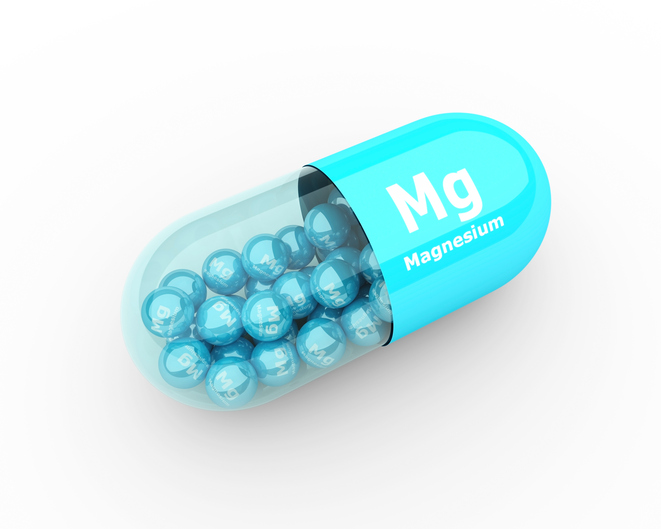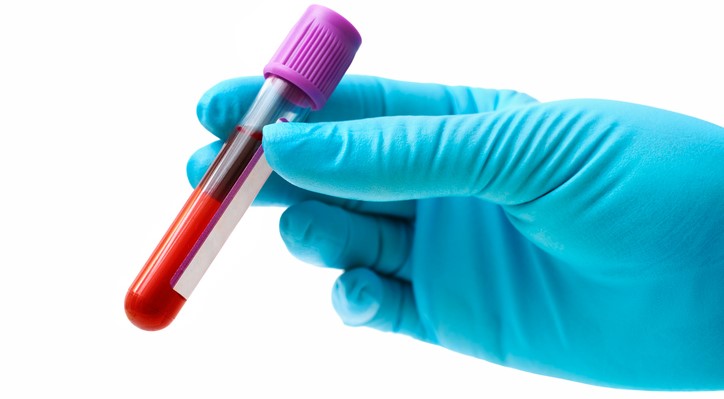- wikiskripta.eu - information on Wikiskripta
- internimedicina.cz - article about tetany in pdf
- webmd.com - What to Know About Hypocalcemia and Tetany
- britannica.com - tetany
What is tetany, tetanic syndrome, what are the symptoms and how is it treated?

Headache, exhaustion, anxiety, body tingling, as well as chest pain or heart palpitations. These and other symptoms can be summarized under the term tetany. For more information about the causes, how it manifests itself, is diagnosed or treated, see the article.
Article content
The most frequently asked question is:
What is tetany?
What causes it?
What problems can occur with it?
Can it be treated and what helps?
Today's hectic way of life places high demands on the fitness of the body, especially the psyche.
Increased stress, whether physical or mental, can trigger an unpleasant condition.
We know it as tetany.
It is also known as tetanic syndrome.
What is the cause of tetany in most cases?
Is it just a magnesium deficiency, or do multiple risk factors play a role?
Read on with us.
This article offers important information regarding the source of the problem and how to help yourself with tetany.
What is tetany?
Tetany is an increased irritability of the central and peripheral nervous system.
This increased irritability is in most cases the result of a magnesium deficiency in the body. It can also be found under the name tetanic syndrome.
It is divided into two main forms.
The second form is non-specific tetany (latent), whose manifestations are hidden.
The first (manifest) form of tetany is manifested by an acute tetanic seizure, at the neuromuscular level. The non-specific form is named after its manifestations, which are not typical - they are non-specific.
In non-specific tetany, the symptoms affect various body systems, such as the nervous, cardiac and digestive systems. In some cases, gynaecological problems may also be observed in women.

Tetany affects more women and most often people between 20 and 30 years of age.
Another way of categorising it is according to the change in ions, according to their reduced or increased levels in the body, i.e. in the body fluids.
These ions include:
- magnesium, for its reduced level in the body and body fluids
- calcium, for its reduced level
- hydrogen, also for reduced levels
- potassium, for increasing levels in the body
- sodium, due to increased levels
- indirectly, phosphorus, for increased levels, for decreased calcium levels
Tetany and tetanus are completely different diseases
You may be familiar with the disease tetanus, but don't confuse it with tetanus syndrome. They are completely different diseases with different causes. Although their manifestation is muscle spasms.
Tetanus and tetany are different diseases.
Tetanus is caused by an infection caused by the bacterium Clostridium tetani. This bacterium is commonly found in nature, mainly in the soil and in the intestines of animals such as horses and cattle. It can also be found in the intestines of humans.
Infection occurs when the skin is injured, even in the case of minor superficial injuries, in contact with an infected object or soil. The bacteria then multiply and produce a toxin. This toxin affects nervous tissue.
Subsequently, the disease manifests itself in muscle spasms. The muscles of the face and neck are the first to be affected. In the later stages, tetanus manifests itself in the typical spasmodic flexion of the body (opisthotonus). Life-threatening spasms of the respiratory muscles occur.
Prevention is established in developed countries by vaccination against tetanus.
The main cause is magnesium deficiency, but tetany is also caused by other factors
The main cause of tetanus syndrome is a deficiency of magnesium (Mg) in the body.
Less common causes include deviations of the other ions listed. Especially calcium or calcium (Ca). It can also be caused by certain drugs, especially those affecting metabolism, such as diuretics (drugs to induce urination), laxatives or corticosteroids, among others.
Diseases can also cause tetany.
For example, diseases of the parathyroid glands, kidneys, CNS disorders, namely central nervous system, both inflammation, trauma, and neurosis and psychosis.
Reduction diets and starvation also have a negative effect.
Tetanic syndrome also occurs with hyperventilation, which is accelerated and deepened breathing. Hyperventilation can occur with neuroses or panic states.
+
It is also associated with acute or prolonged stress.
Hyperventilation causes the level of ionized calcium or calcium in the blood to decrease. This in turn causes symptoms of hyperventilation tetany.
And those difficulties include:
- tingling of the lips
- tingling in the face
- tingling in the extremities, especially the fingertips.
Many people often complain of tingling that affects different parts of the body.
Is hyperventilation tetany to blame?
A hyperventilating person may also experience anxiety, chest pain and fear for their life.
Also read the article:
Hyperventilation - not just difficulty breathing and facial, arm, leg tremors to muscle cramps
The basic first aid in this case is to adjust the frequency and depth of breathing. Otherwise, there is a risk of worsening the difficulties.
The cause of tetany may be:
- reduced ion levels, especially magnesium and calcium
- vitamin D deficiency
- alkalosis, such as with repeated vomiting
- rapid breathing or hyperventilation, but also hyprerventilation tetany as a consequence of respiratory alkalosis
- hypoparathyroidism, which is a disease of the parathyroid glands and their reduced function
- psychiatric disorders
- vegetatively unstable people
- reduced adaptation, i.e. adjustment to stressful situations
- neurosis
- phobias
- depression
- spasmophilia, which is a susceptibility to convulsions
- certain medications such as diuretics, laxatives, heart medications, corticosteroids
- starvation
- reduction diets
- alcoholism

Tetany and alcohol don't get along. Alcohol makes the problem worse.
Tetany and its symptoms
Tetany can manifest itself in several ways. According to this, it is also divided into manifest and non-specific tetany.
Manifest tetanic syndrome is classified according to the acute convulsive tetanic attack.
Fear, uncertainty.
Heart palpitations, dizziness and nausea with a feeling of fainting and weakness. Tingling of the body, limbs, fingertips or lips.
One of the most unpleasant manifestations can be the feeling of difficulty breathing. Trying to breathe causes the person to speed up and deepen their breathing.
And that's bad.
Hyperventilation worsens the overall course
(Hyperventilation = accelerated and deepened breathing).
That's another way to describe a tetanic seizure...
And how to avoid aggravation and how to manage the attack? Calm down, breathe slowly and controlled and don't think about the negatives.
Acute tetanic seizure
This convulsive attack primarily affects the muscles of the upper limbs. The upper limbs are contracted at the elbows and wrists. The fingers of the hands are also in a convulsive position.
This muscle spasm is also referred to as obstetric hand cramp.
The lower limbs are also affected by muscle cramps. They are stretched and stiff especially in the knees and ankles. Otherwise, this muscle cramp of the limbs is also referred to as carpopedal spasm. Apart from muscle cramps, paresthesias, which is actually a tingling sensation in the body, also occur.
In some cases, there may also be a spasm of the muscles of the airways, known as laryngospasm. This is a spasm of the muscles of the larynx. In this case, there is difficulty breathing loudly, especially during the inspiratory phase. In this case, cyanosis may also be associated.
Acute tetanic seizure occurs suddenly, hence the name acute.
It lasts from minutes to hours.
Even if the person is unable to speak and the whole body is in convulsions, he is fully aware of himself and his surroundings.
Beware, at this stage it can very easily be confused with an epileptic seizure.
A tetanic seizure disables a person from normal life for a short time.
But it does not cause permanent disability.
It needs to be treated early to keep the person fully fit for as long as possible.
Tetany usually manifests non-specifically
Acute tetanic spasm is less common. Although in the case of hyperventilation tetany, it results from failure to manage accelerated and deepened breathing.
More often, however, there are atypical or nonspecific symptoms.
This form of tetany is also referred to as latent, or hidden, mainly because its manifestations are not typical.
The nervous system, the cardiovascular system, but also the digestive or, in women, the gynaecological system are affected.
The table shows how non-specific tetany manifests itself with regard to the body systems
| Body system | Symptoms |
| Nervous system | Headache, which may be migrainous or tension-type |
| dizziness | |
| tingling in the body or paresthesia especially of the lips, tongue, fingertips also perceived as tingling | |
| a feeling of weakness in the limbs | |
| increased sensitivity to noise | |
| problems with the cervical spine | |
| fainting to collapse | |
| lip spasm, fish mouth, facial muscle spasm, causing difficulty speaking and chewing | |
| painful nocturnal tetanic cramps in legs, calves (cramps) insomnia | |
| muscle pain | |
| muscle twitching | |
| stiffness of the neck muscles | |
| Psychiatric symptoms | neurasthenia |
| internal tension | |
| irritability | |
| anxiety | |
| phobia, unexplained fear | |
| depression | |
| inability to concentrate, lack of focus | |
| fatigue | |
| restless legs syndrome | |
| sleep disturbances and insomnia | |
| Cardiovascular system | chest pain, chest pressure can mimic a heart attack, which in turn worsens the psychological state, fear for life |
| heart palpitations, feeling of skipping heartbeats, i.e. palpitations | |
| rapid heartbeat, i.e. tachycardia | |
| high blood pressure | |
| shortness of breath, feeling short of air, even hyperventilation | |
| Digestive system | abdominal pain in the stomach area, cramps in the stomach, intestines, pain in the side, lower abdomen |
| feeling of heaviness in the stomach | |
| gallbladder discomfort | |
| impaired swallowing | |
| dry mouth | |
| feeling of a foreign body in the throat, lump, ball in the throat i.e. globus hystericus | |
| diarrhoea | |
| Gynaecological system | menstrual disorders, irregularity of the cycle |
| painful menstruation | |
| increased susceptibility to miscarriage | |
| risk of eclampsia in pregnancy | |
| difficulties with lactation, i.e. the production of breast milk | |
| increased risk of thrombosis and embolism when using contraception |
How is the diagnosis made?
It is because of the non-specific course of the disease that tetany warrants the various examinations that an affected person undergoes.
Of course, most of the time, the results are fine and no obvious cause is found.
The main examination methods include:
- clinical examination
- EMG, i.e. electromyograph, muscle function tests
- biochemical examination of the blood, especially the determination of magnesium and other ion levels, i.e. ionogram
Other diseases are ruled out according to the symptoms, such as migraine, heart disease and fear of heart attack, epilepsy, brain inflammation, metabolic disorders. A general practitioner, internist, cardiologist, neurologist, psychiatrist collaborate in the diagnosis.

How is tetany treated?
The first choice in tetany caused by magnesium deficiency is its supplementation. Magnesium replacement must be carried out over a long period of time, even several months. One-time administration does not help. And has no therapeutic significance.
Magnesium is, of course, also found in natural sources.
Such as fruit, vegetables and also water, although not all hard water contains enough of it. Alternatively, mineral waters with a higher magnesium content. It does not have to be supplemented only in tablet form or intravenously or intravenously.
What sources of magnesium we know:
- nuts
- cereals
- bran
- legumes
- soya
- oatmeal
- leafy vegetables
- sesame
- rice
- bananas
- yeast
- cheese
- cocoa, dark chocolate
- water, mineral water
For tetanic syndrome, due to reduced calcium levels, the treatment is similar, i.e. supplementation. For other forms, treatment is chosen according to the underlying cause. And lifestyle modification plays an important role.
Getting enough rest, sleep and eliminating stress.

Relaxation from psychological burden and from stress takes different forms. Each person finds a different hobby that will help him to relieve the mental burden. For someone it can be reading, watching TV, walking, hiking, sports, exercise and other physical activities, yoga, pilates, swimming and so on.
The main thing is to start...
The first aid in hyperventilation tetany is the already mentioned reduction of the breathing rate and adjustment of the depth of breathing. For example, it is enough if a person lies down in a comfortable position, relaxes the limbs. In doing so, calms the breathing.
It is advisable to count the time of inhalation and exhalation.
The inhalation should take approximately 4 seconds and the exhalation 8 seconds.
Tetany in pregnancy
During the period of pregnancy, there is an increased requirement for nutrients. This includes minerals, vitamins and also other substances.
The pregnant woman is sensitive to the changes and so is the fetus. In case of known tetany before pregnancy, monitoring of ion levels, i.e. ionogram, is necessary.
And in a situation where there are non-specific discomforts or muscle cramps that could indicate tetany, an immediate examination is needed. The doctor will determine the appropriate course of treatment according to the laboratory blood tests. Of course, arbitrary use of medication without prior consultation is not recommended.
What helps with tetany
You ask:
How to help yourself with tetany?
And what to watch out for?
What will help you:
- Magnesium
- Calcium
- vitamin D
- relaxation exercises
- enough rest, sleep
- think positive
- good lifestyle
- good eating habits
- good physical activity
What hurts:
- Stress and psychological strain
Video about tetany
Interesting resources










